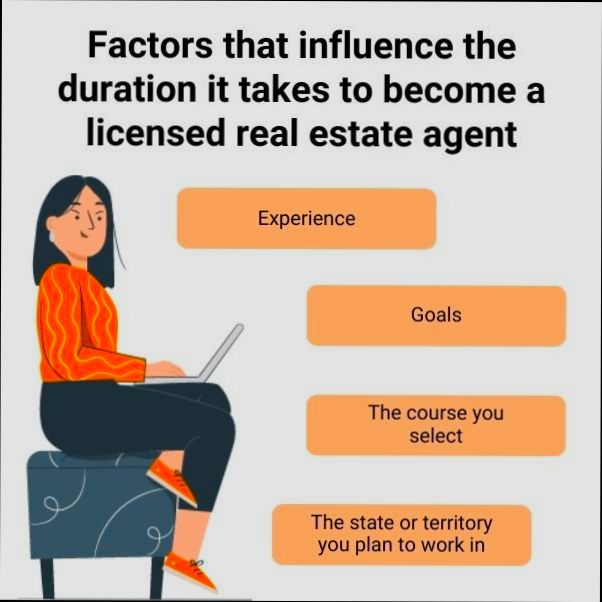How long does it take to become a real estate agent? Well, it’s not a one-size-fits-all answer. Depending on where you live, the process can vary quite a bit. In states like California, you might complete the required 135 hours of coursework in just a couple of months if you study full-time. On the flip side, in Texas, you need to rack up 180 hours. You can also factor in that once you’ve nailed your coursework, you’ll need to pass a state exam, which can require additional prep time. Many folks choose to study part-time while juggling jobs, which can stretch the process out to six months or longer.
Let’s talk about the big picture, too. After you’ve finished your classes and passed that exam, you typically need to find a brokerage to sponsor you, which can add even more time to the timeline. Some people are off to the races in as little as three months, while others may take a year or more to get fully licensed and start closing deals. So, whether you’re chasing after your dreams or testing the waters, the timeline can really depend on how quickly you dive into the work needed and adapt to the rules of your home state.

Timeline for Real Estate Licensing Process
Navigating the timeline for the real estate licensing process can feel overwhelming, but understanding each step can help you move efficiently from one stage to the next. From education requirements to field training, let’s break down the timeline and the factors that can influence how long it takes to get your license.
Key Steps in the Licensing Timeline
1. Pre-Licensing Education:
- Most states require between 60-180 hours of pre-licensing coursework, depending on your state regulations. This can take anywhere from 2 weeks to 6 months, depending on how you choose to complete the classes.
- For instance, a student completing an online course full-time might finish the 75-hour requirements in as little as 2 weeks, while someone attending night or weekend classes might take a couple of months.
2. State Exam Preparation:
- After your coursework, you usually need to study for a few weeks to prepare for the state examination. This study period typically spans 2-4 weeks.
- It’s important to note that candidates who spend more time in focused study often report higher success rates on their first attempt—statistics show passing rates can vary significantly, with some states averaging around 50%.
3. Taking the Licensing Exam:
- Scheduling and taking the licensing exam can add another few weeks. Depending on your state, exams may be offered more or less frequently, causing delays.
- For example, if your state only offers the exam once a month, and you need to schedule after a few weeks of preparation, that could extend your timeline significantly.
4. Submitting Your Application:
- Once you pass the exam, submitting your application for the license typically takes 1-2 weeks for processing, depending on state backlog or processing times.
- Some states allow for expedited processing for an additional fee, which can reduce this timeframe to just a few days.
Timeline Comparison Table
| Step | Duration | Factors Affecting Timeline |
|---|---|---|
| Pre-Licensing Education | 2 weeks to 6 months | Course format (online, in-person) |
| State Exam Preparation | 2-4 weeks | Individual study habits |
| Taking the Licensing Exam | Varies (1-4 weeks) | Exam availability and scheduling |
| Application Submission | 1-2 weeks | State processing times and backlogs |
Real-World Examples
- Example 1: Jennifer completed a 75-hour online pre-licensing course in 3 weeks. After studying for 3 weeks, she took the exam and passed on her first try. She then submitted her application for a license, which was processed in just 10 days. Overall, her timeline was approximately 7 weeks.
- Example 2: Mark attended an evening class that lasted 3 months. He spent an additional month preparing for the exam, which he ultimately passed on his second attempt. The application took 3 weeks to process. His total timeline stretched to 5 months.
Practical Implications
To effectively manage your timeline:
- Create a study plan that aligns with your schedule and stick to it.
- Be proactive in scheduling your exam as soon as you complete your coursework to avoid delays.
- Consider state-specific processing times when planning your application submission to ensure you can start working as soon as possible.
Actionable Insights
- If you’re aiming to become a real estate agent, research your state’s requirements and timelines early.
- Check for flexible course options that fit your lifestyle, whether online or in-person.
- Network with others who have recently navigated the licensing process to gain insights into their timelines and tips.
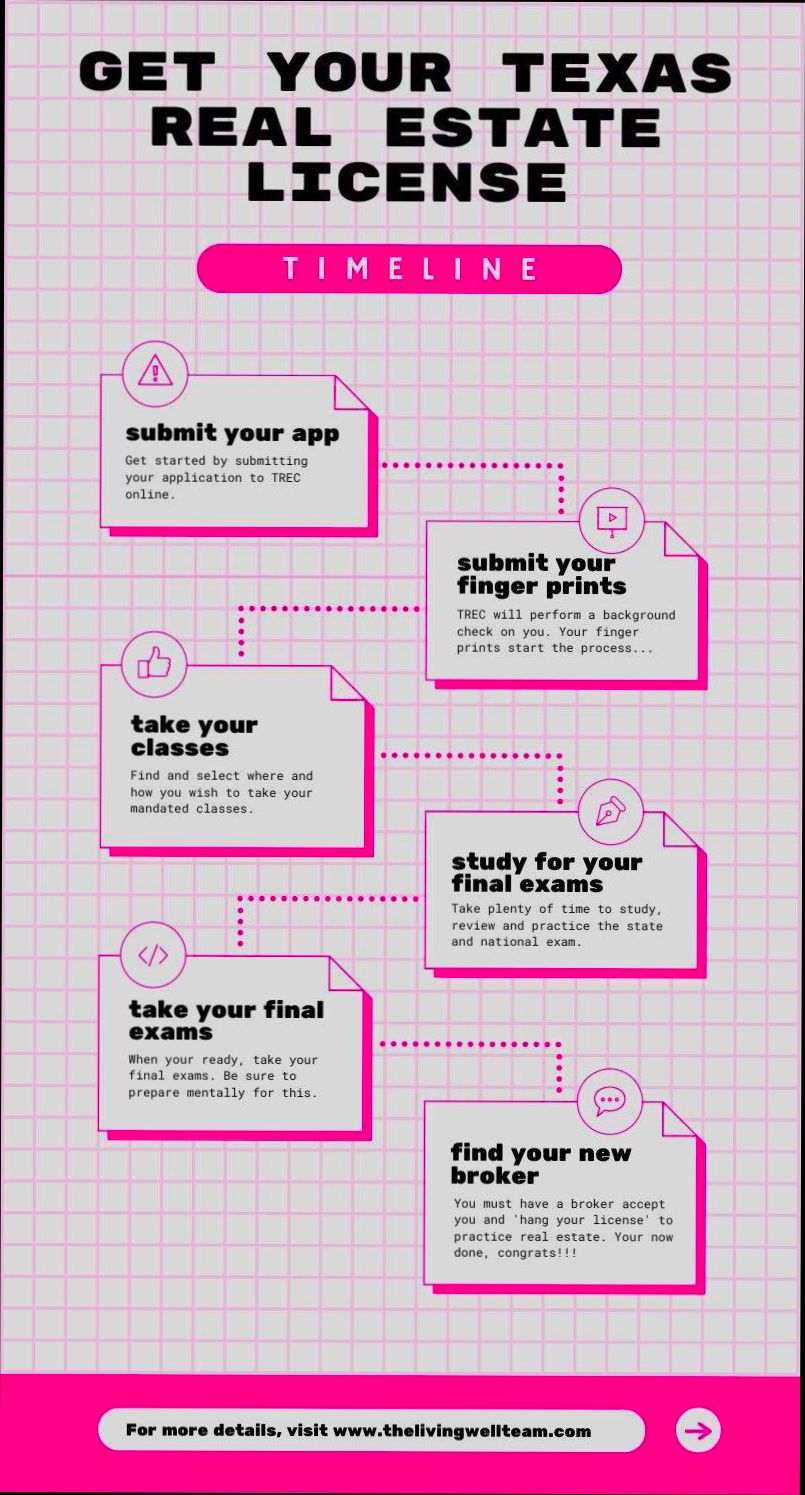
Educational Requirements for Aspiring Agents
If you’re considering a career as a real estate agent, understanding the educational requirements is a crucial first step. Here, we explore what you need in terms of education and any additional qualifications to get started on your path to becoming a successful agent.
To begin with, most states require aspiring real estate agents to have a high school diploma or equivalent. This foundational education is critical as it sets the groundwork for the further studies required in real estate.
Additionally, many states mandate that candidates complete a specific number of hours in pre-licensing education. This requirement varies by state, but you typically need anywhere from 60 to 180 hours of coursework. The courses generally cover essential topics such as real estate principles, property management, and real estate law.
Here’s a look at some key educational requirements by state:
| State | Minimum Pre-Licensing Hours | High School Diploma Required | Additional Requirements |
|---|---|---|---|
| California | 135 | Yes | Must pass the state exam |
| Texas | 180 | Yes | Must complete additional training |
| Florida | 63 | Yes | 45-hour post-licensing course |
| New York | 75 | Yes | Must pass the state exam |
| Illinois | 75 | Yes | Must pass the state exam |
To enhance your chances in the job market, pursuing an associate’s or bachelor’s degree in fields such as business or finance can also be beneficial, though not always essential. Some universities now offer specialized programs focused on real estate. Having a college degree can set you apart when applying for positions or when competing with other agents.
Real-World Examples
For instance, in California, completing 135 hours of pre-licensing education is a requirement, which includes coursework in real estate principles and practices. This structured learning helps ensure you grasp essential concepts that are crucial for a successful career.
In contrast, Florida’s requirement of just 63 hours may appeal to those looking to enter the workforce quickly. However, the state also emphasizes a post-licensing course to ensure effective market readiness.
Practical Implications
Understanding these educational prerequisites allows you to plan your path more effectively. Start by checking your state’s specific requirements and ensure that you meet them.
Consider enrolling in online courses if you have a busy schedule, as many real estate schools offer flexible options.
Another practical step is to network with licensed agents to gain insights into their educational journeys. They might share valuable resources or recommend specific courses that have proven useful in their careers.
For those interested in specialized roles, keep an eye out for certifications that can enhance your skill set. While not mandatory, certifications in areas like property management or commercial real estate can further elevate your profile in the competitive market.
If you’re determined to embark on a successful real estate career, understanding and meeting the educational requirements is your first key step. Ensure you stay focused on the specific requirements of your state, and don’t hesitate to reach out to educational institutions for guidance on their real estate programs.
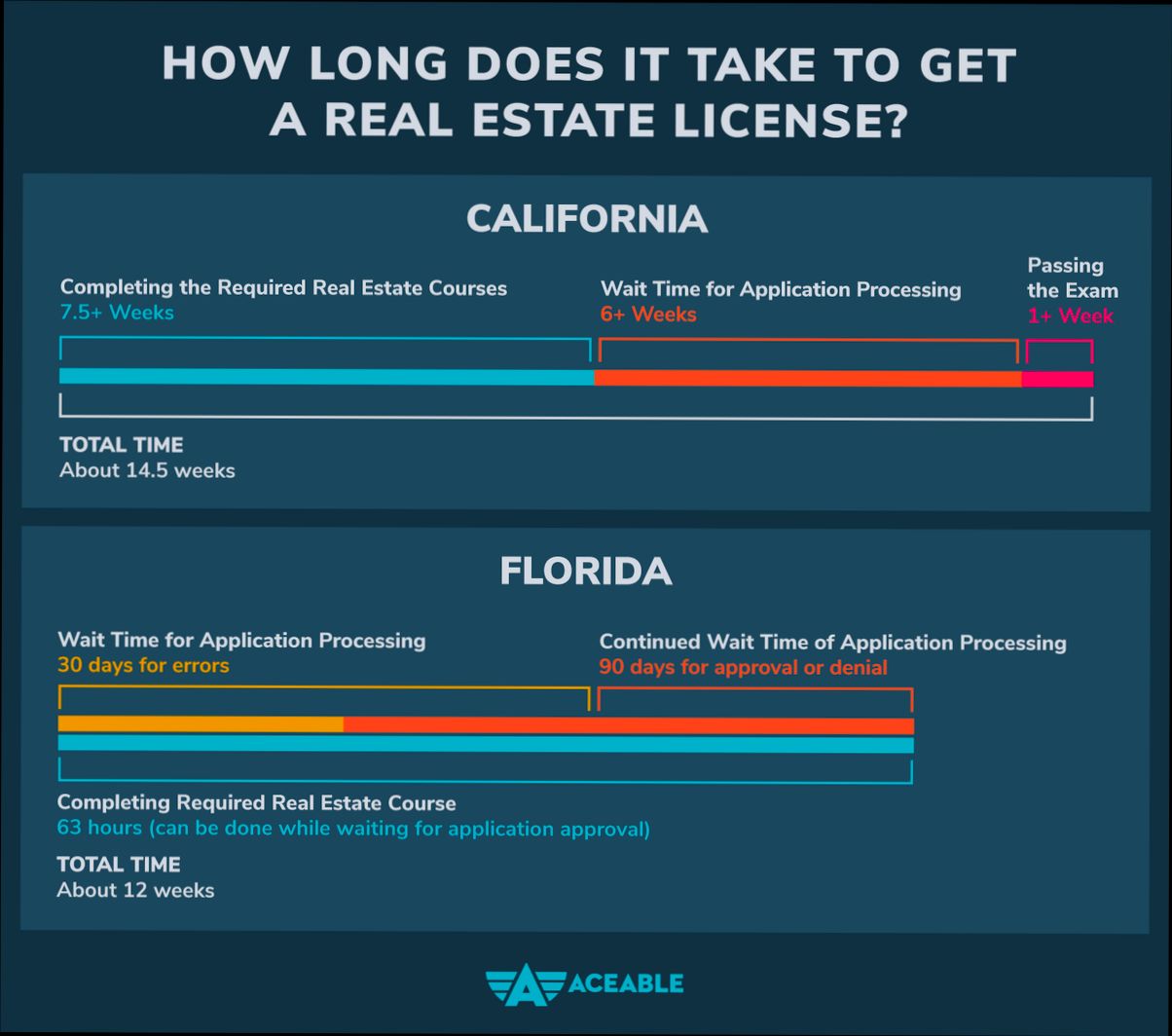
Statistical Overview of Licensing Durations
Understanding the statistical landscape of licensing durations for real estate agents provides valuable insights for aspiring agents. While various factors influence the timeline, we can break down the durations based on state requirements and average processing times.
Key Statistics on Licensing Durations
- Typical Duration: On average, it takes 4 to 6 months to become a licensed real estate agent across the United States.
- Variability by State: Some states can process applications more efficiently; for example, in Texas, the average time to receive a license after submitting your application is approximately 3 weeks.
- Pre-Licensing Hours: 35 states require potential agents to complete anywhere from 60 to 180 hours of pre-licensing education before applying for a license.
- Exam Passing Rate Variability: The average exam passing rate is around 50%, but this can extend the overall timeline for many candidates who need to retake the exam.
- Dual License Duration: If you’re pursuing a dual license in two states, the total duration could extend up to an additional 6 months due to separate educational and application requirements.
Licensing Duration Statistics Table
| State | Average Duration to Get Licensed | Required Pre-Licensing Hours | Exam Passing Rate |
|---|---|---|---|
| Texas | 3 weeks | 180 hours | 62% |
| California | 4-5 months | 135 hours | 55% |
| Florida | 1-3 months | 63 hours | 48% |
| New York | 6 months | 75 hours | 57% |
| Illinois | 1-2 months | 75 hours | 56% |
Real-World Examples of Licensing Durations
Consider the case of an aspiring real estate agent in Florida. After completing the mandated 63 hours of education in just over a month, they scheduled their licensing exam. However, due to a lower-than-average passing rate of 48%, they needed to retake the exam, extending their total duration by an additional 2 months.
Conversely, an individual in Texas who completed their 180-hour coursework found success in passing the exam on the first try and received their license in only 3 weeks, demonstrating how crucial exam preparation can be in expediting the overall process.
Practical Implications for Aspiring Agents
- Planning: Consider the average licensing duration specific to your state when planning your career transition. If you’re in a state with a longer processing time, factor that into your decision-making.
- Study Preparation: Be proactive in preparing for the licensing exam since a higher passing rate can significantly reduce your overall timeline.
- Networking: Engage with existing real estate professionals to gain insights about their experiences and potentially expedite your understanding of the process.
Actionable Facts and Advice
- Research your state’s specific licensing requirements and average durations on official real estate commission websites.
- Develop a study schedule that allows ample time for exam preparation, ensuring you can graduate from the educational requirements and take the test promptly.
- Stay informed about any changes in legislation or processing times that might affect your licensing duration, as these can shift with new regulations.
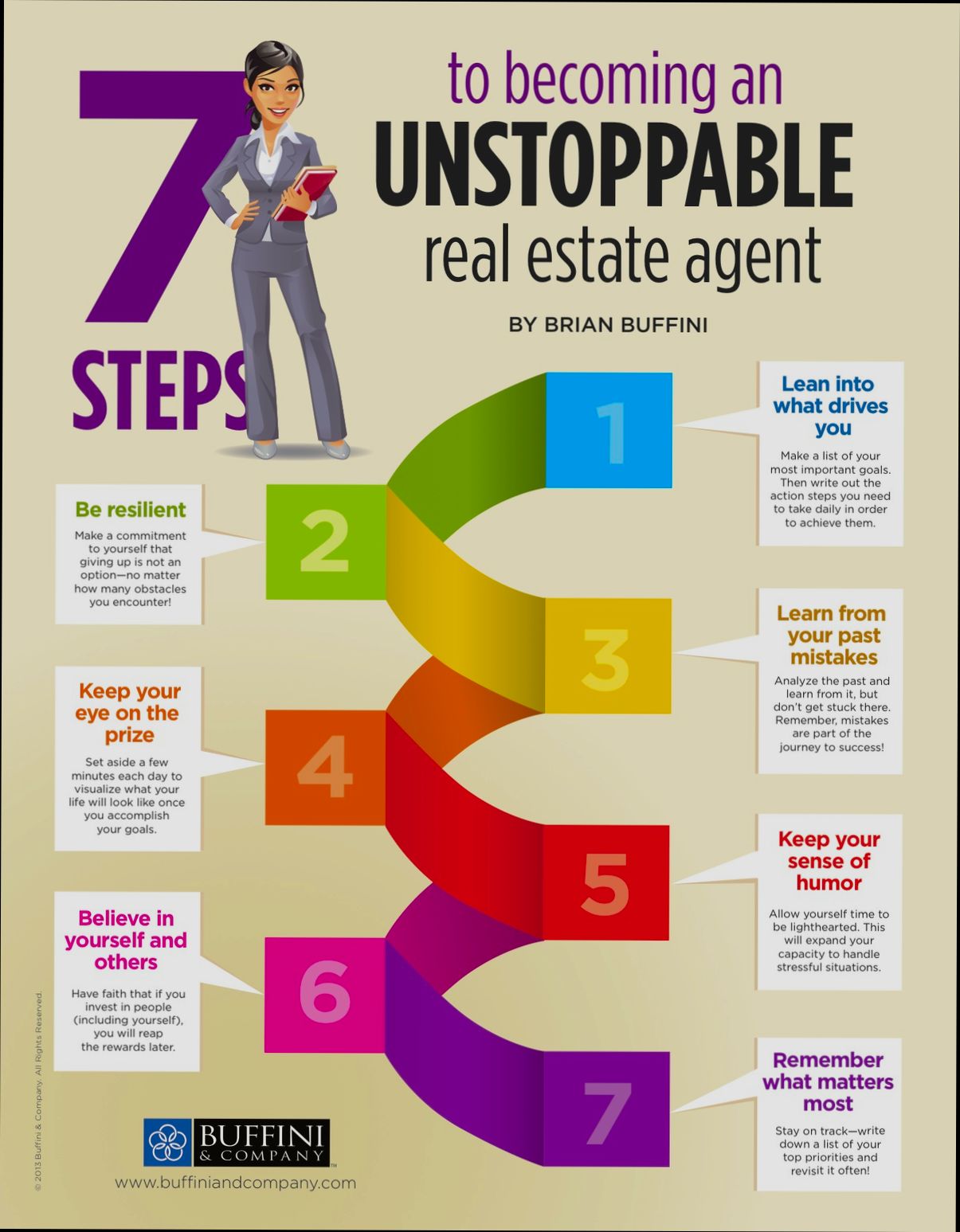
Factors Influencing Time to Certification
When pursuing a real estate license, several factors can significantly influence how long it takes to achieve certification. By understanding these factors, you can better prepare yourself and potentially streamline your path to becoming a licensed agent.
Mandatory Training Hours and Course Availability
One of the primary factors impacting your time to certification is the number of mandated training hours provided by your state. Each state has its requirements, typically ranging from 40 to 180 hours of pre-licensing education. For instance, if you’re in a state that requires 120 hours of coursework, the speed at which you can complete these hours will affect your overall timeline. Additionally, the availability of courses—whether in-person, online, or hybrid—will influence your ability to progress swiftly.
- 40 to 180 hours: Varies by state
- Online courses may accelerate the process for many candidates
Examination Factors
At this stage, you will need to take a licensing exam to demonstrate your proficiency. The time to take the test and the test preparation can vary significantly among individuals. Statistically, pass rates for first-time test-takers can influence your timeline. For example, in studies related to professional exams, up to 30% of candidates may not pass on their first attempt, potentially extending the time it takes to receive their certification.
| Year | Number of First-Time Test-Takers | Pass Rate of First-Time Test-Takers |
|---|---|---|
| 2018 | 1,160 | 71% |
| 2019 | 1,149 | 71% |
| 2020 | 1,300 | 74% |
This reflects that along with preparation time, your success on the first attempt greatly impacts how quickly you can get certified.
Personal Factors and Preparation
Your personal readiness significantly affects your time to certification as well. Elements such as your prior knowledge of real estate concepts and test-taking skills can play a pivotal role. The more prepared you are, the less time you may need for study, which can help expedite your certification.
- Candidates with a background in related fields often require less preparation time
- Motivation levels can impact study efficiency and exam performance
Geographic Differences
Furthermore, geographic location can lead to variations in the certification timeline based on demand for real estate agents in specific areas. In areas with slower job markets, there may be longer wait times for examination slots and education courses, which can delay your certification.
Real-World Examples
Take John, for instance. He completed his pre-licensing coursework in just three weeks, thanks to an intensive online program offered by his state’s real estate license board. He then scheduled his exam only two weeks later and passed on the first try. Consequently, John’s overall time to certification was only five weeks.
On the other hand, Sarah took six months. She was initially unaware of the requirements and struggled to find a suitable in-person course due to high demand in her area, leading to delays in her education and exam scheduling.
Practical Implications
To successfully navigate the timeline toward certification, consider these actionable insights:
- Begin with a clear understanding of your state’s specific educational requirements.
- Opt for the format of courses that best fits your learning style—online programs may offer flexibility.
- Assess your readiness and focus on areas where you might need additional preparation to increase first-attempt success rates.
- Keep an eye on regional job market trends, as they can affect course availability and demand for real estate professionals.
Understanding these influencing factors will help you navigate the certification process more efficiently and ensure you are prepared for the challenges ahead.

Real-World Examples of Career Paths
Exploring the different career paths within real estate can illuminate the diverse opportunities available to aspiring agents. Understanding these paths not only enhances your knowledge but also helps you decide which direction aligns best with your interests and skills.
Varied Career Paths in Real Estate
1. Residential Agent: Many real estate agents fall into this category, focusing on buying and selling homes. According to a recent survey, approximately 62% of licensed agents report working primarily in residential sales.
2. Commercial Agent: Specializing in commercial properties, these agents interact with businesses looking for office or retail space. Interestingly, about 12% of agents choose this path, which often leads to higher commission potential due to larger transactions.
3. Real Estate Investor: Some agents shift their focus from brokering sales to investing in properties themselves. This path can be lucrative, as nearly 30% of real estate agents surveyed indicated they also invest in real estate as a means to supplement their income.
4. Property Manager: Managing rental properties, property managers focus on maintaining properties and securing tenants. Approximately 15% of real estate professionals enter this realm, balancing responsibilities like marketing, leasing, and tenant management.
5. Real Estate Appraiser: For those interested in the valuation of properties, becoming an appraiser offers a specialized role. About 8% of professionals in the field pursue this path, requiring a keen understanding of market dynamics and property features.
Comparative Overview of Career Paths in Real Estate
| Career Path | Percentage of Agents | Primary Responsibilities | Earning Potential |
|---|---|---|---|
| Residential Agent | 62% | Buying/selling homes | Moderate to High |
| Commercial Agent | 12% | Leasing/selling commercial space | High |
| Real Estate Investor | 30% | Purchasing and managing properties | High |
| Property Manager | 15% | Maintaining properties, managing tenants | Moderate |
| Real Estate Appraiser | 8% | Valuing properties | Moderate |
Real-World Case Studies
- Samantha, a Residential Agent: After gaining her licensing in 5 months, she focused on residential sales. With a strong network, she closed 20 transactions in her first year, earning her over $100,000.
- John’s Shift to Investing: After 2 years in residential sales, John transitioned into property investments. He purchased multi-family units, which not only increased his income but allowed him to teach workshops on real estate investment strategies.
- Laura as a Property Manager: Starting her career as a residential agent, Laura discovered a passion for property management. Within 3 years, she built a portfolio of 50 rental units, establishing a steady income stream and a successful business venture.
Practical Insights for Career Exploration
- Consider the licensing timeline when selecting your career path; some roles may require additional certifications or training.
- Leverage your network: Connecting with experienced professionals in your desired field can provide you with guidance and insights.
- Explore internships or mentorships in specific areas of interest to gain firsthand experience and build your resume.
Remember, each career path in real estate offers different opportunities and rewards. As you progress in your journey, stay open to learning and adjusting your direction based on what you discover about the field and yourself.
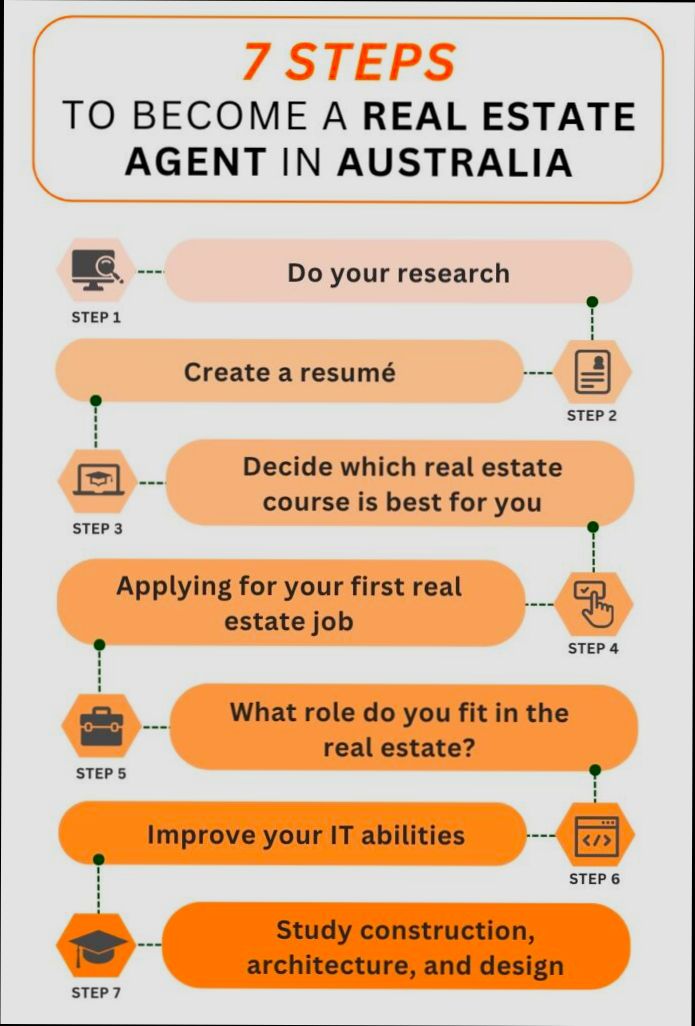
Benefits of Accelerating Your Real Estate Career
Embarking on a real estate career can be a fulfilling journey, but accelerating that journey can provide you with a significant edge in a competitive market. By taking proactive steps to fast-track your success, you can not only shorten your time to financial independence but also enhance your professional reputation and network.
Key Benefits of Accelerating Your Career
1. Increased Earning Potential: Accelerating your career can dramatically impact your earning potential. According to the National Association of REALTORS® (NAR), agents with less than a year of experience earn an average of $30,000, while those with three years or more can see earnings exceed $100,000. Fast-tracking your progress allows you to tap into higher income brackets sooner.
2. Expanded Network Opportunities: By engaging in mentorship programs and networking events early in your career, you position yourself to build valuable relationships. Nearly 70% of successful agents attribute their success to a robust professional network.
3. Enhanced Skills and Knowledge: Training programs and workshops designed for quick assimilation of industry knowledge can be a game-changer. For example, brokers who invest in advanced training see productivity increases of up to 25% in their teams.
4. Improved Market Understanding: Becoming proficient in real estate trends and data analysis early on helps you make informed decisions that elevate your brand. Agents who leverage data effectively can outperform their peers by 20%, providing them a significant market advantage.
Comparative Overview of Accelerating vs. Traditional Pathways
| Career Stage | Traditional Timeline | Accelerated Timeline | Income Potential |
|---|---|---|---|
| Pre-Licensing Training | 3-6 months | 1-2 months | Varies by state |
| First Year Earnings | $30,000 | $50,000 | Potentially higher with strategic moves |
| Networking Opportunities | Limited | Robust networking events | Increased reputation |
| Skills Development | Tiered learning | Intensive workshops | Higher productivity rates |
Real-World Examples of Accelerating Your Career
- Case Study: Young Agent Success: An agent who completed their training in half the expected time utilized online courses and hands-on mentoring from top-performing agents. Within their first year, they closed 15 transactions, surpassing the average for new agents by 50%.
- Example of Strategic Networking: A rookie agent attended multiple National Association of REALTORS® (NAR) workshops and expanded their professional circle. As a result, they received referrals that contributed to their first major sale, valued at over $500,000.
Practical Implications for Your Career
By seeking out opportunities, such as advanced education and active involvement in the NAR community, you can significantly enhance your career trajectory. Consider these actions:
- Enroll in intensive real estate courses that focus on practical skills.
- Participate in local real estate networking events and join online webinars.
- Seek mentorship opportunities with seasoned agents to accelerate your learning curve.
Taking intentional steps toward acceleration not only boosts your income potential but also places you in a position of influence faster than traditional pathways.
For example, engaging with resources like the REALTOR® Store and utilizing marketing tools specific to real estate can streamline your efforts and provide you with a competitive advantage. Maximize every tool and resource available to ensure a successful and rapid progression in your real estate career.

Common Challenges in Becoming an Agent
Becoming a real estate agent may sound exciting, but the journey is riddled with challenges that many aspiring agents encounter along the way. Understanding these hurdles can prepare you for what to expect as you transition into this competitive field.
Financial Constraints
One major challenge is the financial investment required to start your career.
- Costs associated with licensing: The real estate licensing process can involve several fees, including pre-licensing course fees, examination fees, and application fees.
- Initial business expenses: After obtaining your license, you may face additional costs for marketing, advertising, and acquiring necessary tools, such as a reliable car or office supplies. Research indicates that up to 31% of new agents struggle with these initial costs.
Time Management Issues
Balancing the time required for education and preparation with everyday responsibilities can be daunting.
- Study commitments: Many candidates report needing to allocate substantial time for studying for the licensing exam. It isn’t uncommon for agents to spend 10 to 15 hours weekly dedicated to study and preparation, especially when juggling personal or work obligations.
- Course schedules: With classes offered at varying times, finding a schedule that fits into your life can lead to frustrations. As a result, about 40% of aspiring agents have to extend the time it takes to get their license due to scheduling conflicts.
Building a Client Base
Once you’re licensed, the challenge shifts to building a sustainable business.
- Networking: Establishing connections takes time and effort. Statistics show that 68% of new agents report difficulties in growing their network, which is essential for generating leads and referrals.
- Brand recognition: New agents often contend with being unknown in their market compared to established agents, making it tough to attract clients and gain trust.
| Challenge | Impact on Aspiring Agents | Percentage Facing Issue |
|---|---|---|
| Financial Constraints | Increased stress and delay in starting | 31% |
| Time Management Issues | Extended timeline to certification | 40% |
| Building a Client Base | Slower growth and income generation | 68% |
Real-World Examples
Consider Jane, who became a licensed agent after six months of study. She faced significant financial pressure from course fees and marketing costs. After her initial launch, she struggled for over a year to cultivate a steady client base, underscoring the difficulty in transitioning from education to real estate practice.
In contrast, Mark leveraged his existing network from a previous career to find clients quickly. However, he still had to invest time into learning market trends and real estate regulations, spending around 12 hours weekly on research and professional development after obtaining his license.
Practical Implications
Being aware of these challenges can help you strategize effectively.
- Financial Planning: Budgeting for both initial and ongoing expenses is vital to avoid unnecessary stress.
- Time Allocation: Create a dedicated study schedule that fits your lifestyle, allowing for flexibility in your personal and professional life.
- Networking Strategies: Join local real estate associations or online forums to enhance your connections and visibility in the industry.
Remember, navigating these challenges is a common experience among new agents, and tackling them head-on will prepare you for a fulfilling career ahead.
